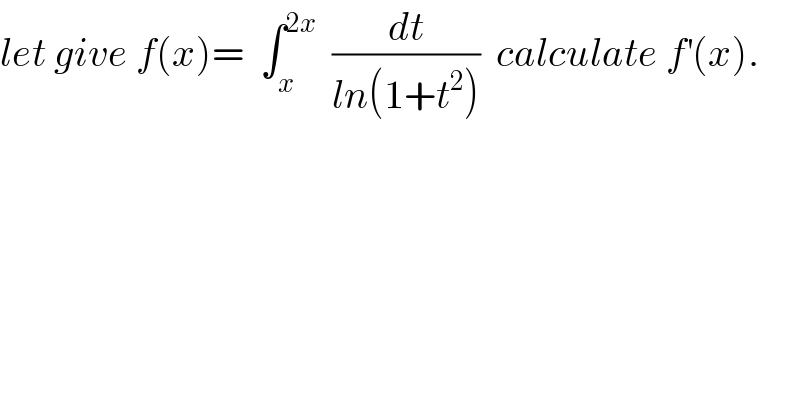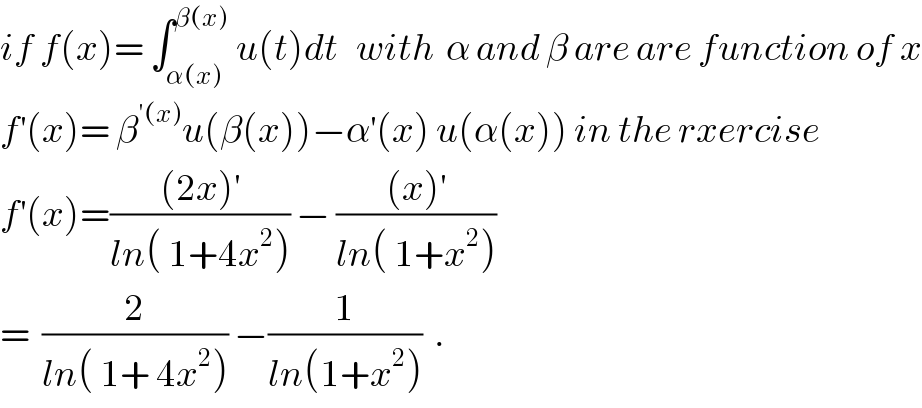
Question and Answers Forum
Previous in Relation and Functions Next in Relation and Functions
Question Number 27379 by abdo imad last updated on 05/Jan/18

Commented by abdo imad last updated on 05/Jan/18

Answered by prakash jain last updated on 05/Jan/18

